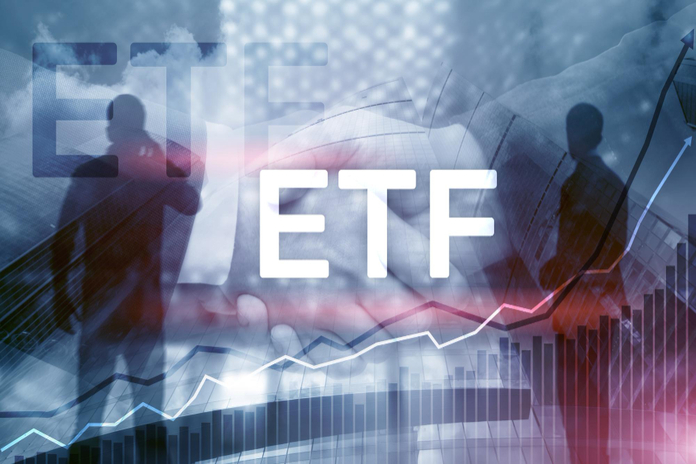When market volatility strikes, investors often reevaluate their portfolios, seeking ways to protect their investments while capitalizing on new opportunities. One of the most popular tools in such times is the exchange-traded fund. The ETF investment benefits have made these financial instruments a go-to choice for many, especially in times of uncertainty.
The Growing Popularity of ETF Investment
Since the onset of the COVID-19 pandemic, the ETF market has seen significant growth. By the end of the first quarter of 2023, ETFs represented $7.1 trillion, accounting for 13% of the U.S. stock market and 2.8% of the U.S. bond market, according to data from BlackRock (NYSE:BLK). This is a considerable increase from $3.5 trillion in 2019, highlighting the rapid expansion and acceptance of ETFs as a mainstream investment vehicle.
Cost-Effectiveness: A Key ETF Investment Benefit
One of the primary reasons for the surge in ETF popularity is their cost-effectiveness. Todd Sohn, an ETF strategist at Strategas Asset Management, emphasized in a recent interview that the fees associated with ETFs have plummeted, thanks to the competitive race among major brokers to reduce commissions.
“You can buy an S&P 500 fund for 2 or 3 basis points. That’s nothing,” Sohn remarked. To put this into perspective, purchasing a single share of each component of the S&P 500 index would require about $105,000. However, replicating the index based on each stock’s weight would necessitate at least $15,500,000, excluding brokerage commissions. In contrast, an ETF with an annual fee of just 0.03% would cost an investor only $3 for every $1,000 invested.
Diversification: Another Core ETF Investment Benefit
Diversification is another critical advantage of ETF investment. ETFs offer access to a wide array of markets and strategies, making them essential tools for achieving broad exposure. Sohn pointed out that ETFs allow investors to tap into “virtually any market around the globe,” providing opportunities that may not be easily accessible through other investment vehicles.
In addition to geographic and asset class diversification, ETFs have evolved to include specialized strategies. For instance, smart beta ETFs follow predetermined rules to select investments, offering a blend of traditional index investing with active management elements. This flexibility makes ETFs a versatile choice for investors looking to diversify their portfolios.
Transparency and Liquidity: Enhancing ETF Investment Benefits
Transparency is another major benefit that ETFs offer. Unlike some investment products, ETFs report their holdings on a daily basis. “I can look at the holdings every day. I know what ingredients are in my investment,” Sohn explained. This level of transparency provides investors with confidence and clarity about where their money is allocated.
Moreover, ETFs provide intraday liquidity, a feature that distinguishes them from mutual funds. While mutual funds can only be bought or sold at the end of the trading day, ETFs can be traded throughout the day. This intraday trading capability offers investors the flexibility to respond quickly to market changes, whether they are looking to capitalize on opportunities or mitigate risks.
Tax Efficiency: The “Secret Sauce” of ETF Investment Benefits
Another often overlooked but significant advantage of ETFs is their tax efficiency. Sohn described this as the “secret sauce” of ETFs. The unique structure of ETFs allows for tax advantages that are not typically available with mutual funds, making them an attractive option for tax-conscious investors.
ETFs as Shock Absorbers During Market Stress
During times of market stress, ETFs can serve as “shock absorbers.” If an investor is worried about the potential decline of a particular stock, they can purchase an ETF that includes that stock’s peers to diversify their holdings and mitigate risk. “ETFs have great value in volatile environments. They’re not exacerbating any sort of market structures. They’re helping smooth things out,” Sohn concluded.
In conclusion, the ETF investment benefits of cost-efficiency, diversification, transparency, liquidity, and tax advantages make them a reliable choice for investors, particularly during periods of market volatility. As the ETF market continues to grow, it is likely that more investors will turn to these versatile instruments to navigate the complexities of the financial markets.
Featured Image: Freepik



